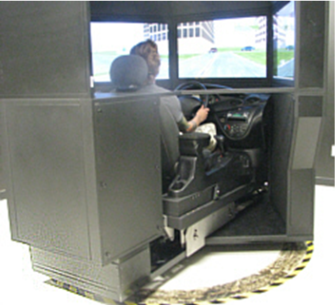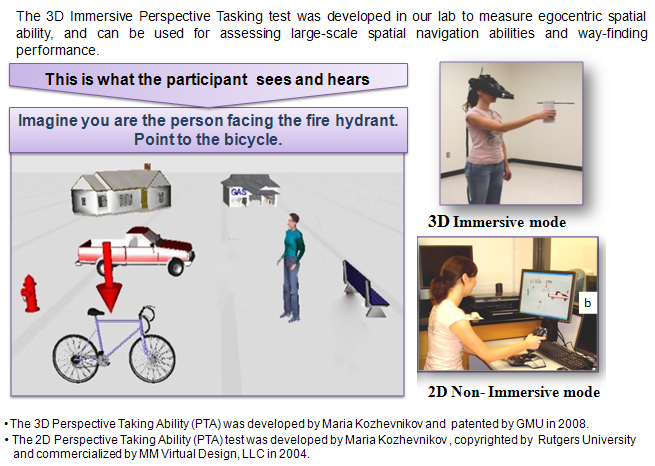Mental Imagery and Human-Computer Interaction Lab
Spatial Navigation and Individual Differences in Environmental Representations
This project involves studies of navigational abilities in virtual (driving simulator) and in real large-scale environments. We examined whether procedural- and survey-type representations of an environment would be present after traversing a novel route. We also examined whether individual differences in visual-spatial abilities predicted the types of representations formed. Our results challenge experience-based, sequential models of adults’ development of environmental representations. Furthermore, more spatially integrated sketch-maps were associated with higher spatial abilities. Our findings suggest that spatial abilities, not experience alone, affect the types of representations formed (Blajenkova, Motes, & Kozhevnikov, 2005; Motes, Blajenkova, & Kozhevnikov 2004).

